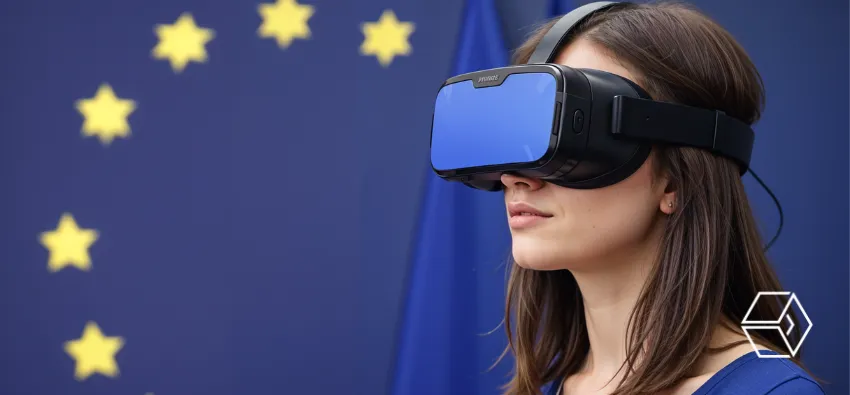
In a bid to position itself as a global leader in the emerging metaverse industry, the European Union (EU) is embarking on a bold initiative to establish an “Airbus for the Metaverse” – a collaborative effort aimed at fostering innovation, development and regulation within the burgeoning virtual reality space. This ambitious endeavor represents a strategic move by the EU to assert its influence in shaping the digital economy’s future and harnessing the metaverse’s transformative potential.
The European Union should establish a new corporation to take the lead in creating a new virtual reality “metaverse,” according to analysts at the London School of Economics and Political Science (LSE). They make analogies between the idea and Airbus, the sizable airline made up of businesses from numerous European countries.
The concept of an “Airbus for the Metaverse” draws inspiration from the successful model of Airbus, the multinational aerospace corporation formed through collaboration among European countries. Just as Airbus revolutionized the aviation industry by pooling resources, expertise, and technology across borders, the EU envisions a similar approach to driving innovation and competitiveness in the metaverse domain.
As per a recent estimate, Europe might surpass the US, China, and other countries in developing the next generation of virtual worlds and the internet by establishing a metaverse firm in the “Airbus-style.” They emphasised that Europe possesses the technological and economic strength to take the lead in this emerging field.
French, German, and Spanish aircraft manufacturers united in 2000 to form Airbus. It is currently the world’s top producer of aeroplanes and helicopters. Experts in London think that by approaching metaverse innovation similarly, Europe can keep its competitive edge.
At the heart of the EU’s initiative is recognising the metaverse as a frontier for economic growth, technological advancement, and societal transformation. With the metaverse poised to revolutionize how individuals interact, work, and play in virtual environments, the EU sees an opportunity to shape the development of this nascent industry in a way that aligns with its values, priorities, and regulatory framework.
Central to the EU’s vision for an “Airbus for the Metaverse” is promoting collaboration and cooperation among member states, industry stakeholders, and research institutions. By fostering an innovation and entrepreneurship ecosystem, the EU aims to stimulate the development of metaverse technologies, applications, and standards that reflect European values such as data privacy, digital sovereignty, and inclusivity.
Moreover, the EU’s initiative seeks to address regulatory challenges and ensure that the metaverse evolves in a manner that prioritizes user rights, safety, and security. By establishing common standards and guidelines, the EU aims to create a trusted and transparent environment for metaverse users, developers, and investors, fostering confidence and facilitating responsible innovation within the industry.
The EU’s push for an “Airbus for the Metaverse” comes during increasing competition and geopolitical tensions in the digital sphere. As other global players, notably the United States and China, vie for dominance in the metaverse space, the EU sees an opportunity to carve out its own niche and assert its values and interests on the global stage.
However, the road to establishing an “Airbus for the Metaverse” is fraught with challenges and complexities. Coordination among member states, funding mechanisms, technological infrastructure, and regulatory frameworks are just some of the hurdles that must be overcome to realize the EU’s vision for a thriving metaverse ecosystem.
Nevertheless, with its wealth of talent, resources, and experience in innovation and collaboration, the EU is well-positioned to lead the way in shaping the future of the metaverse. By investing in research, fostering partnerships, and setting clear objectives and priorities, the EU can establish itself as a driving force in the global metaverse industry, ensuring that European values and interests are reflected in tomorrow’s virtual worlds.












